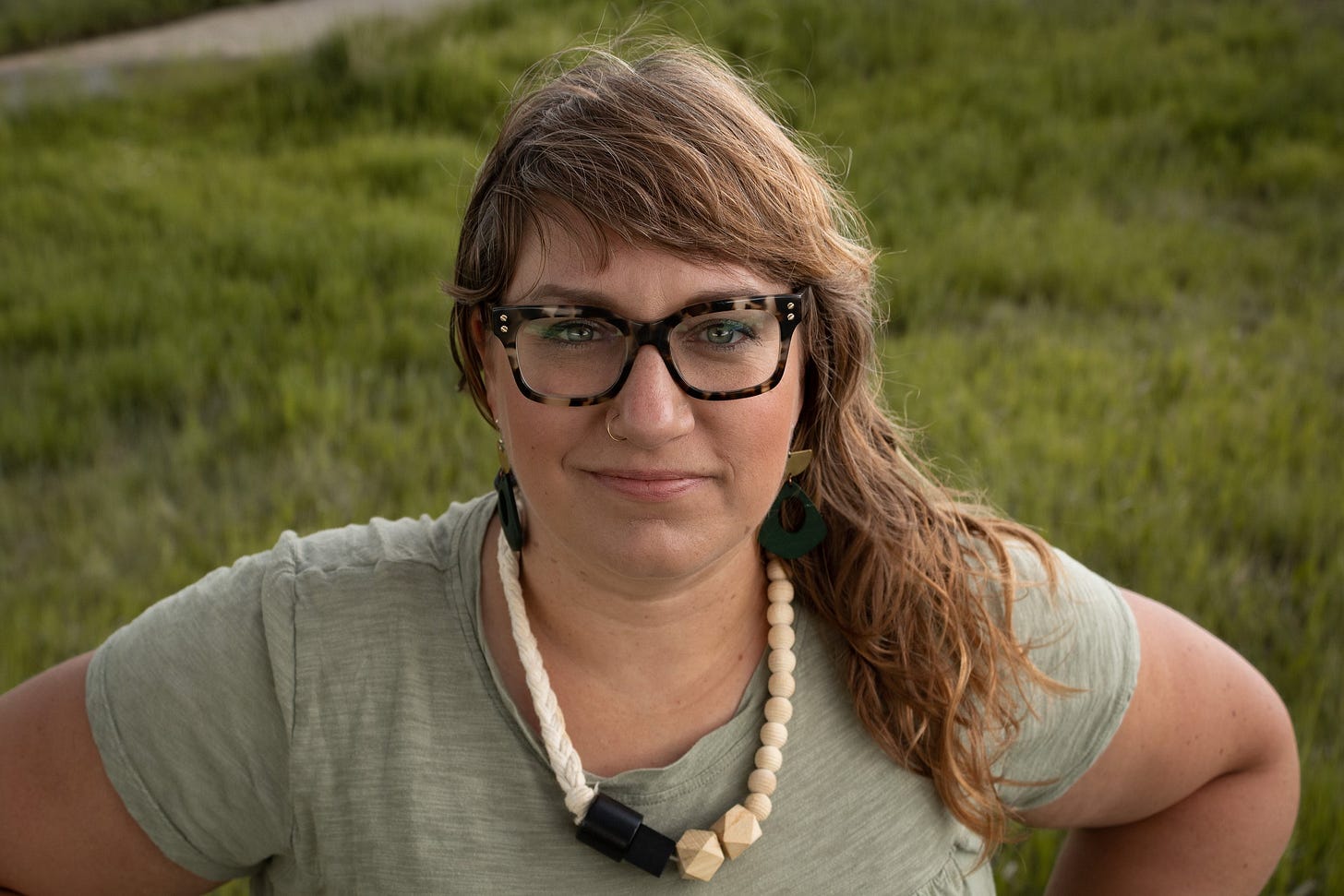Rethinking Quiet Time for a Fuller Faith
Meeting God anew in the Scriptures
When I was little, I remember my Sunday school teacher telling us that it was impossible to know the whole Bible—that you could spend your whole life studying it, memorizing it, and still, no one could know it all. My 8 year-old self was skeptical, even when my parents backed this claim. I flipped through the many pages of my “Precious Moments” Bible and thought: if someone tried hard enough, I bet they could memorize it.
It wasn’t until later that I realized that memorizing something and understanding something are two different things. It wasn’t until later that I realized how finite we are and how big God is. It wasn’t until later that I understood that following Jesus was a lifelong pursuit and relationship.
Knowing God and growing in our faith aren’t passive activities. It doesn’t just happen to us as time goes by. Instead, we must be intentional about spending time with God. And the older I get, the more I realize that we are surrounded by ways we can connect with God—not only through Scripture, and the Holy Spirit, but through nature, music, and other people.
One of those other people that have pointed me to God in a fresh way is
. Her forthcoming book Knock at the Sky: Seeking God in Genesis After Losing Faith in the Bible is helping me encounter God in a new way. Her words are both poetic and well-researched, and so I am delighted to introduce you to Liz here today!Rethinking Quiet Time for a Fuller Faith
by
I used to have Philippians memorized. Or at least, I used to be trying to memorize the entire book of Philippians. I grew up in the white American evangelical protestant tradition with former Navigators for parents, and so I learned that my job, as a Christian, was to write out as much of the Holy Text as could fit onto 3x5 cards that you would then carry around in your jeans pockets until they disintegrated in the wash. The point of this ritual was to protect against the following worst-case scenarios:
You have been arrested in a hostile, secular country without a suitcase (preferably for declaring faith in Jesus to a hostile, secular government during a short-term mission trip), and there’s no indication you’ll be extradited anytime soon,
You have been shipwrecked on a desert island where you have washed onto shore alone and without your handy pocket New Testament (as did Tom Hanks and his beach ball),
You have been kidnapped by pagan Sudanese pirates who neither believe in Bibles, nor have any English Bibles on board to get you through your seasick hostage situation.
In these cases, with so much of the Holy Words memorized, you could access the Bible off the top of your head, as if you’d copied it onto the microfilm of your mind, and you’d be dramatically transformed into the apostles Paul and Silas, voila!, belting Bible verses you’d memorized into the sky so as to convert any nearby pirates and/or pagan parrots. In my tradition, we measured ourselves by how high of a 3x5 stack we’d memorized.
Unfortunately, I’m the kind of woman who has stress dreams about being cast in a play and then being required to memorize a five-page script. When I speak in front of groups, I consult an outline and then fill in the rest extemporaneously. I’m not a literal, word-for-word kind of woman.
So, based on my inadequate memorizing, I felt I was constantly disappointing Jesus. Sure, I could make my way around the Bible well enough to win a sword drill or two (see below), and I found the academics of my Christian high school’s bible class fascinating (you better believe I can recite the precise order of the weirdest prophets in the Bible’s nether regions), but imprinting entire chapters in order, word-for-word, onto my heart? That was never going to happen.
But thanks be to God, the faith I practice as an adult woman has evolved from that shame-based faith I practiced as a teenager. I no longer think there’s one right way to meet God, to make God happy, or to read/interpret God’s book.1 I could go into detail here about how American, how Western, and how privileged our idea of “personal quiet time” really is. But I understand that the desire of my elders was good: those who developed these methods of study wanted to impart spiritual seriousness to their mentees. They wanted to provide tools to learn about God, in hopes that book-learning could become something more. But sometimes, those narrow practices can leave us without room to meet God, and I will tell you that my shame often inhibited me from opening the Bible in the first place.2
Whether the “personal quiet time” formula works for you or not (and it does work for some of you type A wunderkinds), each human experiences seasons of faith—say, you have a newborn and cannot keep your eyes open long enough to peruse the onionskin page with that miniscule font. Do we believe that God despises us for our weariness? What about for our grief or pain? Do we believe that God despises our humanness so much that any ounce of inattention or inaction will lead God to reject us? Do we believe God to be so horrible as this?
The God of the Scriptures is not like this. According to the ancient storytellers, God is the patient father of the prodigal, always looking out the window for our return and always taking us back with joy when we attend to the presence that never left us alone anyway.
In this age of fake news and conspiracy theories, I suspect that our fear of God and each other reveals an ignorance of the Scriptures. If this is the case, then I’d like to invite you to become reacquainted.
Start at the beginning with the book of Genesis this January.3 In Genesis, we watch the first humans encounter God, a divinity they have not met or even heard of before God arrives. And this God speaks the universe into being with a voice as alien as whale song. And in Genesis, we witness the love of God for these humans. God does not despise us; in Genesis, over and over, we prove that we despise God.
Even so, God’s pursuit of humankind is relentless. God makes first contact. God does not wait to appear until we’ve prepared ourselves, stuffing our brains with verse numbers and charts, reciting incantations and burning animals in order to catch and hold the Deity’s attention. No, God appears, and God instead beckons us. Will we receive the gift?
Liz Charlotte Grant is an award-winning writer whose Substack, the Empathy List, has been nominated for two Webby Awards. This year, her essay about Elisabeth Elliot’s third marriage had Christian twitter buzzing, and her debut book, Knock at the Sky: Seeking God in Genesis After Losing Faith in the Bible, releases from Eerdmans on January 7, 2025.
Something I wrote: The Art of Living Well: How To Paint a Life of Meaning. The process of painting is just like the process of living our daily lives. Read on for 4 ways we can live a life of meaning in the new year.
Something I read and loved: Reading the Bible is Hard by
was SO inspiring, and rings true about what I’ve noticed: it’s often better to read in community rather than in isolation!Something I listened to: New Year, Same Me with Oliver Burkeman on the Everything Happens podcast. For all of us (like me) who cling to the myth that all we need is the right planner and gel pens to get everything done!
Something I’m cooking: I love this Sweet Potato Black Bean Chili for how versatile it is (she has some great suggested substitutions!) and for her instructions to make it in the instant pot or slow cooker should you so choose.
One of my most popular freebies is ready to go for 2025! Give yourself just ONE task to accomplish each day. When you cross it off your list, color in that day’s picture because you win! Click here to download (hit reply if you forgot the password!)
Until next time,
For the record, the right way to have a quiet time looked like: 30 minutes of ACTS prayer + one chapter each from the New and Old Testaments, the first part of the routine completed in the dark before school so that it would help you witness to your pagan classmates that day, so as to eventually convert them, so as to make God pleased with you. Then add to that 1 Psalm before bed as a “hedge of protection” to take away bad dreams. The wrong way to quiet time: any other way).
My teenage prayer journals are filled with confessions like, “I’m sorry it’s been so long since I last prayed/read the Bible/spent time with you, Jesus. I can’t believe I did it again.” And I find myself wondering how often my guilt of failing yesterday actually stopped me from showing up a day later... so that my distance from God compounded.
If you do decide to read through Genesis this January, would you consider adding my book to your study plan? It’s called Knock at the Sky: Seeking God in Genesis After Losing Faith in the Bible, and it’s a reverent, creative, and interdisciplinary journey through the book of Genesis. I hope it inspires joy and freedom within you. (You can preorder the book now, and it’ll arrive the week of January 7, 2025. 😊)









Sarah, I'm resonating with this ... my quiet times continue to be in flux, every changing, shifting, morphing, becoming more personal in style. I'm so grateful that God meets us at every turn, always beckoning, welcoming. Thank you, Jesus ...
This looks so interesting!